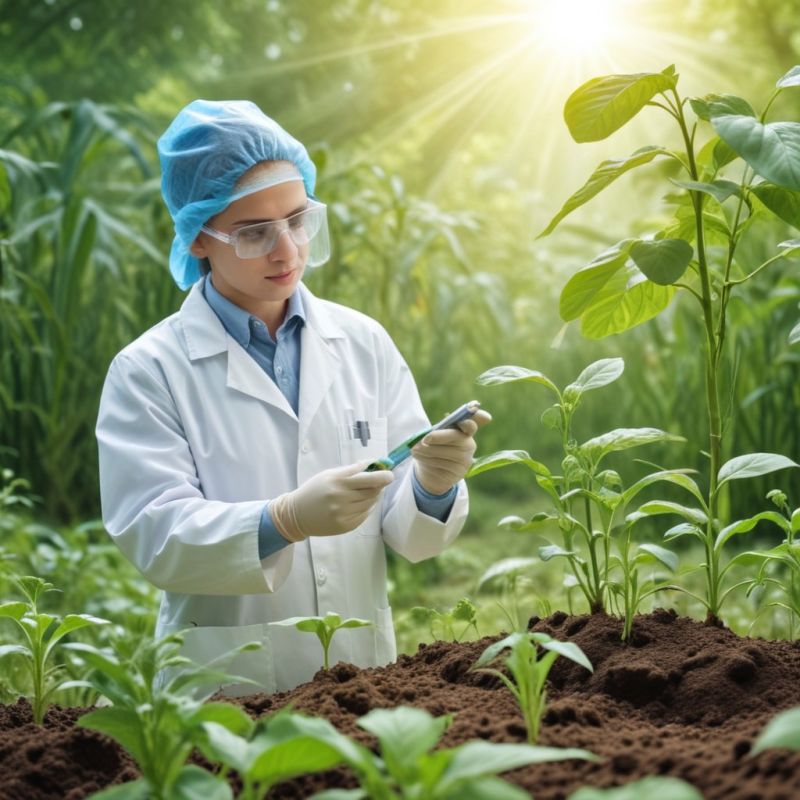
How Biotechnology Supports Sustainable Farming
What Is Sustainable Farming?
Sustainable farming refers to agricultural practices that promote environmental health, economic profitability, and social responsibility. The goal is to maintain productivity while preserving natural resources for future generations. Key principles include:
- Efficient Resource Use: Reducing water, energy, and land consumption.
- Soil Conservation: Preventing erosion and maintaining soil fertility.
- Biodiversity Preservation: Encouraging diverse ecosystems.
- Minimizing Chemical Inputs: Reducing pesticides, herbicides, and synthetic fertilizers.
How Biotechnology Supports Sustainable Farming
Biotechnology provides innovative solutions to enhance agricultural sustainability. Here’s how:
1. Genetically Modified (GM) Crops
GM crops are engineered for traits that promote sustainability, such as:
- Drought Resistance: Crops that require less water, reducing strain on freshwater resources.
- Pest Resistance: Plants with built-in resistance (e.g., Bt cotton) decrease pesticide use.
- Herbicide Tolerance: Reduces the need for excessive tillage, preventing soil erosion.
2. Improved Soil Health
Biotechnology enhances soil conservation through:
- Nitrogen-Fixing Crops: Reducing the need for synthetic fertilizers by improving nitrogen uptake.
- Biodegradable Biofertilizers: Promoting beneficial microbes that enhance soil fertility.
3. Reducing Chemical Use
Biotechnology reduces dependency on harmful agricultural chemicals:
- Biopesticides: Naturally derived pest control reduces environmental contamination.
- Precision Breeding: Producing crops that resist diseases without synthetic treatments.
4. Increased Crop Yields
Biotech crops have been shown to:
- Improve productivity without expanding farmland.
- Enhance nutritional value (e.g., Golden Rice enriched with Vitamin A).
5. Climate Change Adaptation
With unpredictable weather patterns, biotech solutions help:
- Develop heat-tolerant and flood-resistant crops.
- Optimize carbon sequestration through engineered plants.
Challenges and Considerations
Despite its benefits, biotechnology faces challenges in sustainable farming:
- Regulatory and Ethical Concerns: GMOs and gene editing are subject to strict regulations and public skepticism.
- Cost Barriers: High costs may limit access for small-scale farmers.
- Biodiversity Concerns: Over-reliance on biotech crops could impact genetic diversity.
The Future of Biotechnology in Sustainable Farming
Innovations such as CRISPR gene editing, synthetic biology, and microbial engineering are paving the way for more sustainable agricultural practices. With responsible implementation and supportive policies, biotechnology can revolutionize farming while protecting the planet.
Final Thoughts
Sustainable farming through biotechnology is not just a possibility—it is a necessity. By integrating biotech innovations with eco-friendly practices, we can ensure a food-secure, resilient, and sustainable future for generations to come.
What’s Your Take?
Do you believe biotechnology is the key to sustainable farming? Share your thoughts in the comments!













